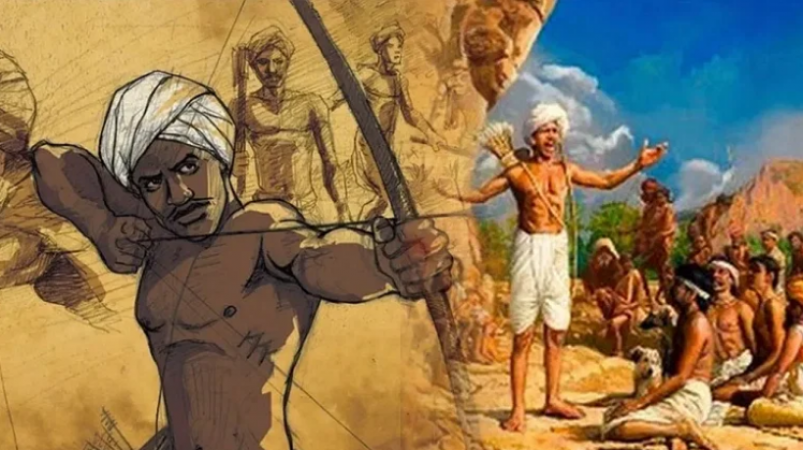
Introduction
Birsa Munda, an iconic figure in Indian history, was a tribal leader and freedom fighter who fought against British colonialism in the late 19th century. Born on November 15, 1875, in the Chhotanagpur region (present-day Jharkhand state), Birsa Munda emerged as a fierce leader, advocating for the rights and autonomy of indigenous tribal communities. This article delves into the life, struggles, and legacy of Birsa Munda, shedding light on his significant contributions to the tribal rights movement and his enduring impact on the fight for independence.
Early life and tribal background
Birsa Munda was born into the Munda tribal community, which belonged to the marginalised and oppressed indigenous population of colonial India. He grew up in a society that was ravaged by British colonization, where the tribal communities faced rampant exploitation, land alienation, and cultural suppression.
From an early age, Birsa Munda witnessed the atrocities committed against his people as the British exploited the region's rich natural resources while disregarding the rights and welfare of the tribal inhabitants. This upbringing fueled his determination to resist the colonial regime and fight for the rights and dignity of his community.
Leadership and Revolt
Birsa Munda's leadership skills emerged during his youth. He became a charismatic and influential figure among the tribal population, leading them in their struggle for autonomy and justice. Birsa rallied his people, challenging the oppressive systems imposed upon them by the British and the local landlords.
In 1895, Birsa Munda spearheaded the millenarian movement known as the "Birsa Movement" or the "Ulgulan Movement." The movement aimed to unite various tribal communities and assert their rights over their traditional lands, forests, and resources. Birsa envisioned a society where the tribal communities could live with dignity, free from exploitation and discrimination.
The Birsa Movement gained momentum and attracted thousands of followers from across the region. Birsa Munda's leadership galvanised the tribal communities, instilling a sense of pride and resistance against oppressive colonial rule.
However, the movement faced brutal suppression from the British authorities. Birsa Munda and his followers were labelled as rebels, and a series of armed encounters ensued. Despite the odds stacked against them, Birsa and his warriors put up a fierce resistance, fighting for their rights and a better future for their people.
Imprisonment and Legacy
In 1900, Birsa Munda was arrested by the British and charged with sedition. He was imprisoned in Ranchi Central Jail, where he spent his final days. Although his time in jail was brief, his impact was significant.
Birsa Munda's legacy as a fearless freedom fighter and social reformer continued to inspire generations to come. His fight against social and economic injustice, his advocacy for tribal rights, and his vision of a more egalitarian society made him an icon of resistance and resilience.
After India gained independence in 1947, Birsa Munda's contributions to the freedom struggle and the tribal rights movement were duly recognised. The government of India honoured him with several awards; statues were erected in his honour; and his name was etched in the annals of Indian history.
The significance of Birsa Munda's legacy extends beyond his role as a freedom fighter. His vision and teachings continue to guide the tribal communities in their quest for empowerment, social justice, and cultural preservation. His emphasis on education and self-sufficiency among the tribal population resonates even today, as efforts are made to uplift and empower indigenous communities across India.
Conclusion
Birsa Munda's unwavering dedication to the rights and autonomy of indigenous tribal communities and his fearless resistance against British colonialism make him an icon of courage and resilience. His legacy as a tribal hero and freedom fighter continues to inspire and guide the fight for justice and equality in India. Birsa Munda's contributions to the tribal rights movement and his enduring impact on Indian history cement his place as a true champion of the marginalised and oppressed.
Ganga Dussehra, May 30: Celebrating the Holy River Ganges
International Tibet Liberation Day: Honoring the Struggle for Freedom